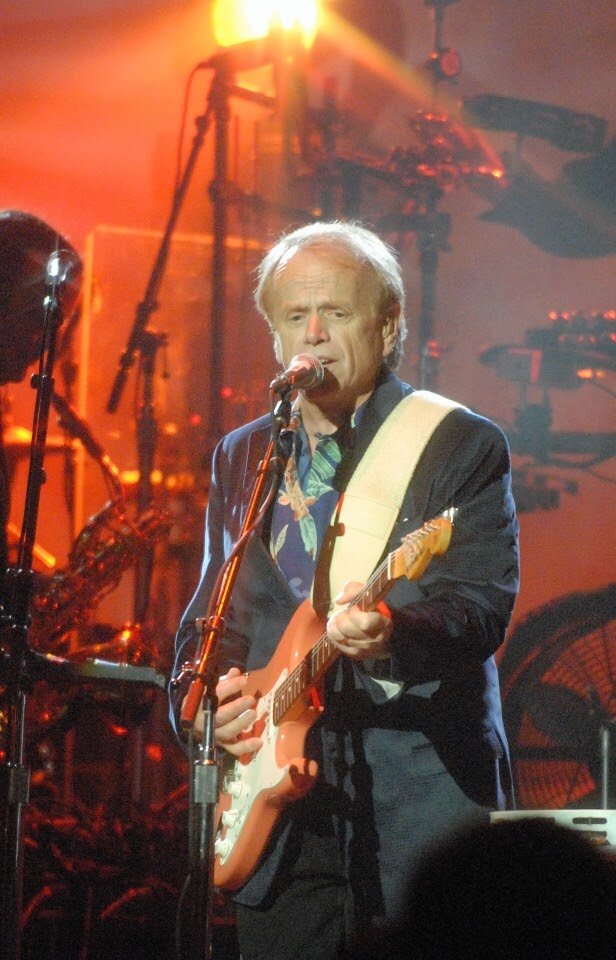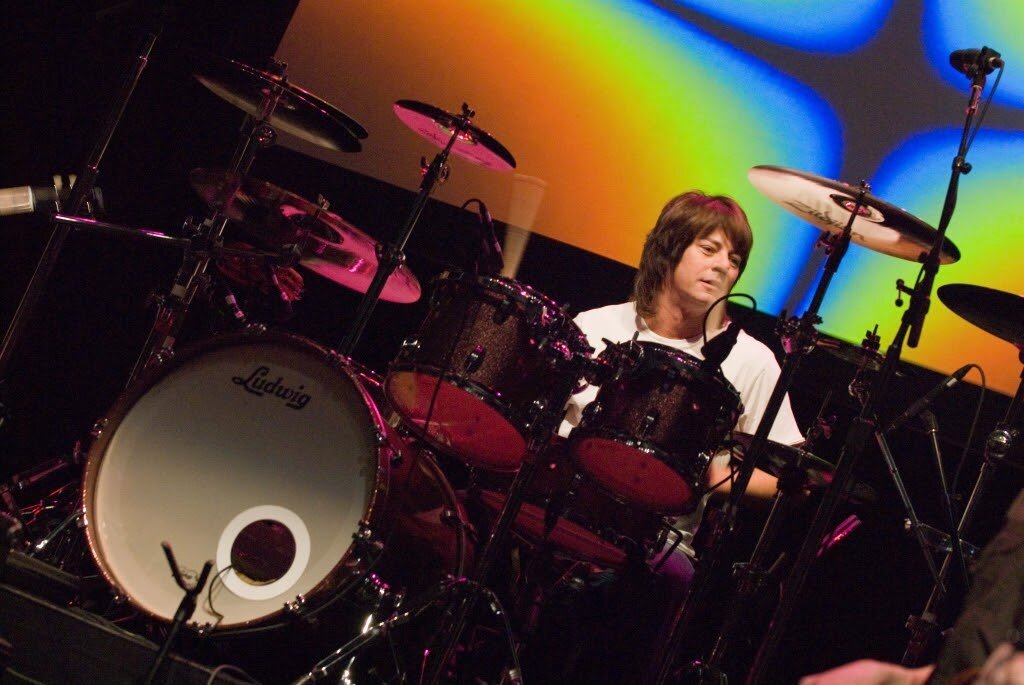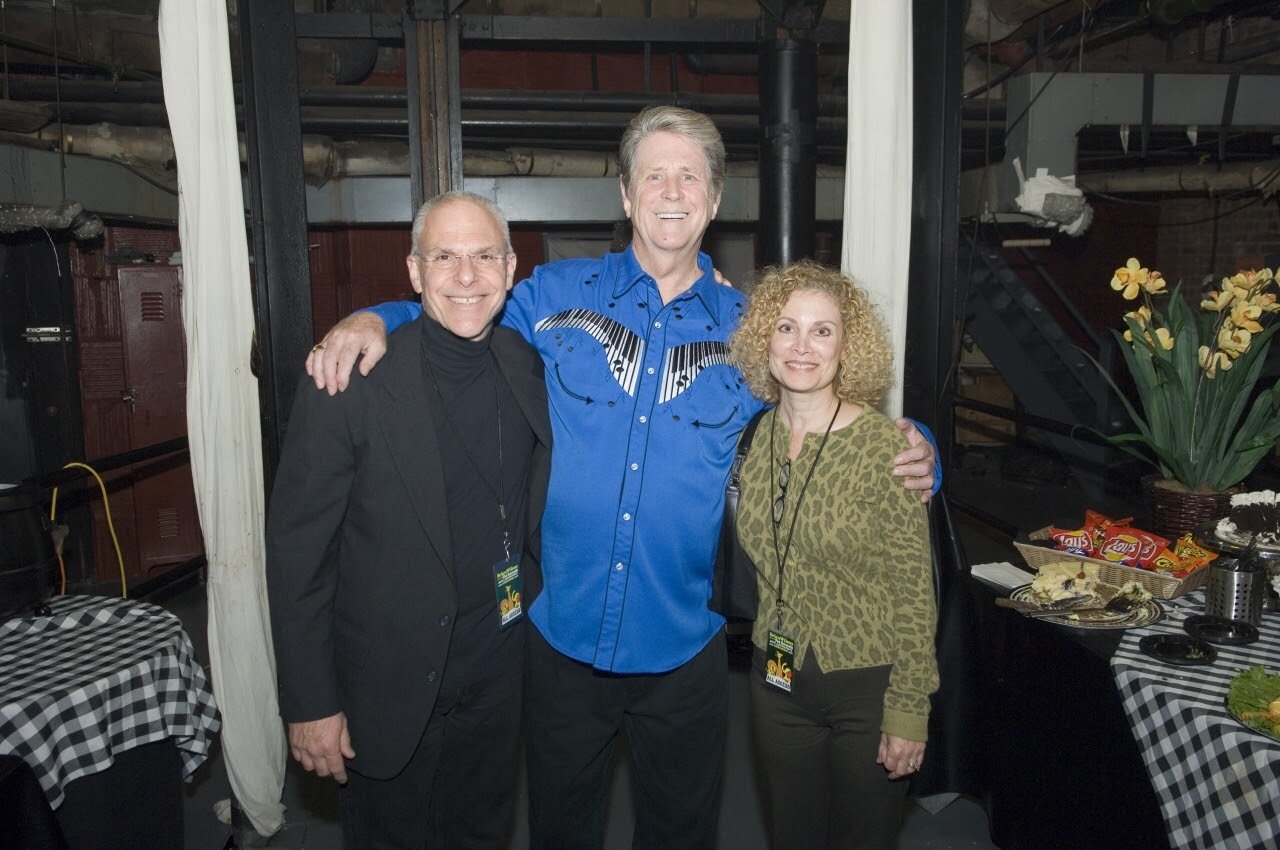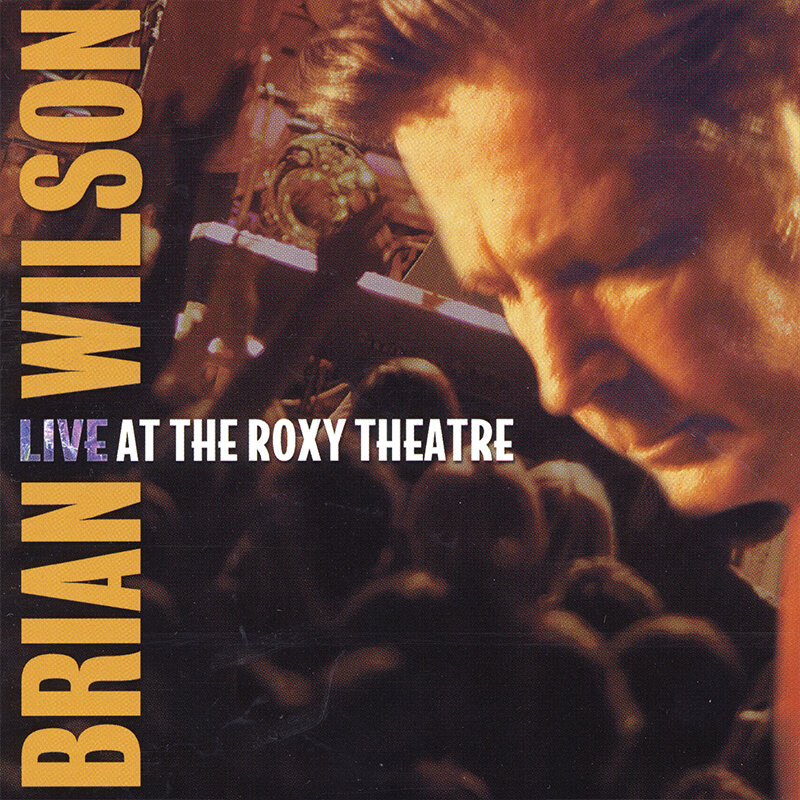2000s
Brian released his first-ever live solo album direct from his website in 2000. Containing classic Beach Boys hits and a few originals, the album documented Brian’s return to form as a live performer, backed by an astounding young band. In 2001, An All-Star Tribute to Brian Wilson was held at Radio City Music Hall in New York City. Elton John, Billy Joel, Paul Simon, Carly Simon, David Crosby, Vince Gill, Jimmy Webb and Sir George Martin were some of the greats who assembled to honor Brian. In 2002, Brian shared the stage with Paul McCartney, Eric Clapton and other luminaries at the Queen’s Jubilee in Buckingham Palace. 2004 saw the release of “Gettin’ In Over My Head” featuring guest performers Elton John, Paul McCartney, Eric Clapton, and late brother Carl on the duet “Soul Searchin.’”
In 2004, Brian decided to revisit the aborted Smile project from 1967. Aided by band member Darian Sahanaja, and lyricist Van Dyke Parks, the work was finally revealed in concert, 37 years after it was conceived. Brian debuted his 2004 interpretation of Smile at the Royal Festival Hall in London and subsequently toured the UK. Following the tour, Brian Wilson Presents Smile was recorded, and released in September 2004 becoming a hit and winning a Grammy Award. In 2007, Brian was the recipient of the prestigious Kennedy Center Honors, attended by President Bush and First Lady Laura Bush. That Lucky Old Sun was released in 2008 to critical and commercial acclaim, while the piece debuted in a series of 2007 concerts starting at London's Royal Festival Hall.
The Albums
LIVE AT THE ROXY THEATRE: 2000
WHAT I REALLY WANT FOR CHRISTMAS: 2005
PET SOUNDS LIVE: 2001
THAT LUCKY OLD SUN: 2008
GETTIN’ IN OVER MY HEAD: 2004
BRIAN WILSON PRESENTS SMILE: 2004

The Kennedy Center Honors
In 2007 The Kennedy Center Honors recognized Brian for a lifetime of contributions to American culture through the performing arts in music. Performers who honored Brian included Art Garfunkel, Lyle Lovett, Hootie & The Blowfish and Libera. Also honored were Diana Ross, Martin Scorsese, Steve Martin and Leon Fleisher. Below, Lyle Lovett performs “God Only Knows.”
Brian Wilson Presents SMiLE
The greatest album that never was finally came to be. The Beach Boys' uncompleted 1967 album SMiLE remained the elusive touchstone of Brian's brilliant career. Artistic Holy Grail and troubling professional Waterloo for Brian, he completed a new version of SMiLE with his brilliant band to worldwide acclaim via a new album and worldwide tour. Following is Robert Christgau’s review in Rolling Stone.
Never mind Pet Sounds. Good record, but a totem. That leaves three great Beach Boys albums. First comes a fun-fun-fun best-of: With the canonical Endless Summer deleted, settle for 2003's longer, less pristine Sounds of Summer. The other two are quickies that fit neatly on one must-own CD: Buy Smiley Smile/Wild Honey while EMI lets you.
Smiley Smile and Wild Honey get respect now, but in 1967 they peeved hard-core Pet Sounds fans, who were waiting gape-mouthed for Smile, described by those in the know as the American Sgt. Pepper — proof that our Bea-boys belonged in the same league as their Bea-boys. But Brian went bonkers, Mike Love got busy, and we ended up with only "Good Vibrations" and "Heroes and Villains" — stopgap singles that made it onto the belittlingly titled Smiley Smile — and dribs and drabs thereafter.
Only you know what happened? Brian Wilson survived his saner brothers and rebuilt his career, which the completely rerecorded SMiLE is supposed to crown. Since much of Wilson's 2004 Gettin' In Over My Head could have been sung from a crypt, this seemed like a terrible idea. Instead, it's a triumph.
SMiLE began as a concert concept for Wilson's expert alt-rock road band, which by 2002 had exhausted Pet Sounds. Never completed, SMile existed only as a jumble of alternate versions, song fragments and ill-cataloged tapes. Sifting through these was a collaborator as crucial as lyricist Van Dyke Parks: keyboard player, harmony vocalist and "musical secretary" Darian Sahanaja. With Sahanaja and Parks jogging his memory, Wilson revised and composed until the best pieces formed a forty-seven-minute whole that started shortly before "Heroes and Villains" and climaxed with "Good Vibrations." While no symphony, it cohered and flowed. The sparer, simpler recorded version follows the pattern of the ecstatically reviewed live performances. Anchored by deft quotes and thematic repetitions, SMiLE is beautiful and funny, goofily grand. It's looser and messier than Sgt. Pepper and, one suspects, always would have been. But its sui generis Americanism counterbalances its paucity of classic pop songs. Not in the same league — just ready to play a World Series.
Although Parks is a well-traveled arranger who must have left some marks on Wilson's music during their hash-fueled 1966-67 brainstorming sessions, his words do the talking. They're poetic in a manner Wilson has no gift for: now idiomatic, now archaic, now obscure, pervaded by images of fleeting youth and a frontier that stretches to Hawaii. Although stoned confusion and mild pastoral pessimism are endemic, the world they evoke is as benign as a day at the beach — yet less simplistic (and deceptive) than the Beach Boys' fantasies of eternal Southern California teendom. In this the lyrics are of a piece with the jokey songlets of Smiley Smile, where five SmiLE titles first surfaced, and the good-natured rock & roll recidivism of Wild Honey. What elevates them into something approaching a utopian vision is Wilson's orchestrations: brief bridge melodies, youthful harmonies more precise and uplifting now than when executed by actually existing callow people and an enthralling profusion of instrumental colors. Trombone, timpani, theremin and tenor sax brush by and disappear; a banjo shows its head; strings vibe around; woodwinds establish unexpected moods and pipe down.
That the pros who surround Wilson are up to all of this is gratifying but not startling. What the auteur himself had in him was more questionable. And that's the central miracle of this gift of music. Wilson's voice has deepened and coarsened irreparably. Although he hits the notes, he can't convey the innocence SMiLE's content seems to demand. But he can convey commitment and belief — belief that his young bonkers self composed a work that captured possibilities now nearly lost to history. SMiLE proves that those possibilities are still worth pursuing.
Recording SMiLE
Motivated by the positive reception of the London Royal Festival Hall premiere of SMiLE, Brian agreed to record a studio version after two weeks of consideration. Recording began on April 13, 2004 with his ten-piece touring band, augmented by a ten-piece string section and an acoustic bassist. The basic tracks were recorded at Sunset Sound Recorders in four days, with overdubbing and mixing continuing until July with some stops at engineer Mark Linett's Your Place or Mine studio.

Recording “That Lucky Old Sun”
Rolling Stone called Brian’s 2008 album That Lucky Old Sun a "musical love letter to his native Los Angeles." Brian’s seventh studio album is considered to be his finest solo work to date. Its main theme is celebration of life iin Southern California, harking back to the themes of Brian’s earlier work with the Beach Boys. Following is a video from a recording session and five demo tracks.
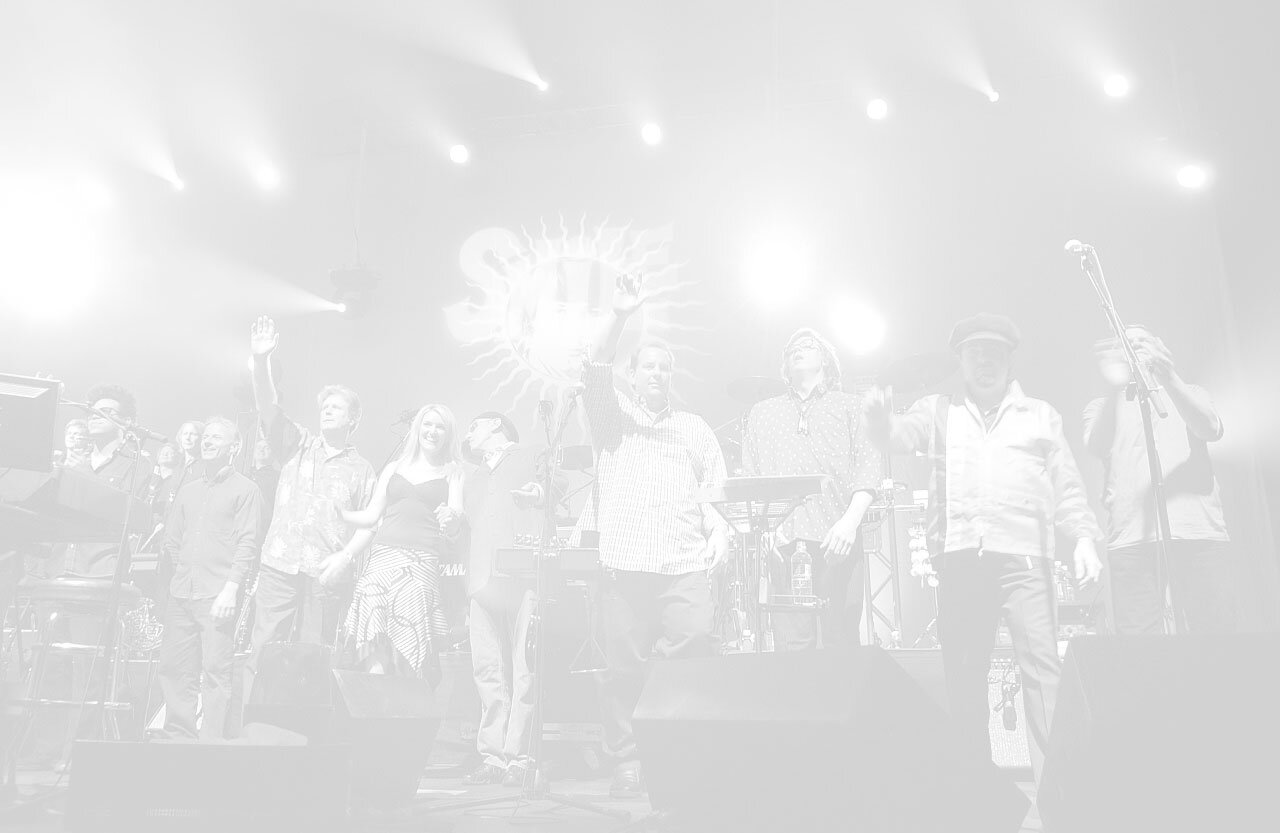
2000 Tours
Brian and his band started the decade touring to sold-out audiences around the world. Brian Wilson Presents SMiLE premiered at the Royal Festival Hall on February 20, 2004. When Smile completed its debut, Brian received a ten-minute standing ovation before he was able to invite collaborator Van Dyke Parks, who was in tears, onstage.
According to band member Darian Sahanaja, "the standing ovation was indescribable. I had never seen anything like it as an audience member or a performer. They wouldn't let him speak or say anything. I stepped up to him and said, 'Uh, Brian... I think they like SMiLE.'" Darian also reported that, after the show, Brain rocked back and forth backstage – out of relief that he had finally conquered his fear of Smile – exclaiming "Darian! Darian! We did it! We did it!" Brian subsequently toured SMiLE around the word to critical acclaim and sellout venues.







